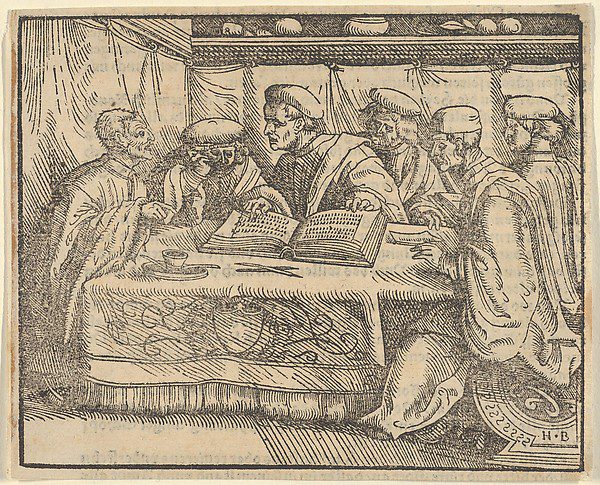I got a comment on Youtube asking me an old classic question that religious people wrestle with. I thought it would be fun and interesting to get answers from a bunch of my colleagues here at Patheos. Here is the question (I am paraphrasing. The original was a bit disturbing in its detail!):
If a man behaves terribly his whole life, rapes, murders, etc. And then realizes the error of his ways. Does he get heaven/moksha/nirvana/reward? What does he have to do for forgiveness? Can he gain it at all?
I was really surprised to get this question to me as a Hindu. Hinduism has a really easy and simple answer to this conflict! So in Hinduism we have reincarnation and a big reason for that is for people to work towards making up for “bad” things they have done. A person who has behaved horribly in this life is not going to get moksha…at this time. It is always possible for them in the future. They are going to have to work through the sanskara of those actions (karma/consequences). Every action has a natural consequence to it and you cannot avoid those consequences. So this person will live through the consequences of their actions but at any time can become a better person and start working towards moksha. It is never too late to make a change. Now let’s say you’ve done some negative things and you are ready to make a change. You will be making positive changes for your future, but it may take some time for those to show up. Because you will still need to work through the consequences of your previous choices. So keep on going, making better choices from here on out and eventually you will transform your life.
From Kaveh at Ask An Ex-Muslim (Atheist)
“As an atheist, I only believe in material ‘rewards’. In that sense, it is completely possible for someone to be an absolute monster and have all the rewards this world has to offer. Stalin died in power, with everyone under his control, but he is not the only genocidal dictator to die with wealth and power. Looking at the world through a secular perspective, we know that the world is indifferent to human concepts like justice, and the only justice in the world is the one we create in it.”
From Alice at Sacred Naturalism (sacred naturalist)
For me, a sacred naturalist, I would need to understand what is meant by “realize the error of his ways” in order to answer properly, but let’s say for the sake of answering, that it means that as he grew into maturity he was suddenly able to feel compassion, a shift in perspective, empathy. What does he ‘get’? He gets all the benefits that come with this way of being and feeling; for example, he may get a chance to relate with others in a positive way that may make him feel good, though his guilt from his past actions may be difficult to bear.
It’s my belief that after death, there is no such thing as heaven, moksha, or nirvana, but since those things are non-falsifiable, I cannot know with any certainty.
Regarding what he has to do for forgiveness, I’d ask: forgiveness from whom or what? The cosmos? The cosmos doesn’t care; the humans the man harmed (from a cosmic perpective) are just matter and energy that will return to the earth and become a part of Earth’s ecosystem.
Or what he has to do to forgive himself? I suspect self-forgiveness would be something he’d struggle with every day if he indeed ‘realized the errors of his ways.’ Forgiveness from others around him if he shared his life story? I suspect the questioner wants us to answer from the perspective of god. I don’t believe there is any principle in the universe that is in the business of forgiving the actions of primates (human or non) living on Earth. What I do believe is that we are social creatures who need others. Forgiveness is adaptive and has been around longer than religions. For more on that, see: http://greatergood.berkeley.edu/…/forgiveness_instinct
From Justin at American Buddhist Perspectives (Secular Buddhist with academic training in early Buddhism)
If a person acts terribly their whole life, they are laying down the causes and conditions for further horrible acts. These habit formations, like deep ruts in a muddy road, cannot just go away one day. But they can be avoided with diligence over time. If the person realizes the error of their ways near death, they might be able to begin that practice. At death, though, they still have those ‘ruts’ or habits and those patterns carry over into the next life.
We can be agnostic about rebirth, and many contemporary Buddhists in the West are, but the tradition is pretty clear that this is in fact what happens. In Buddhism, one is seen as very fortunate to be born in the human realm, where suffering and opportunities to practice and learn are well balanced. A particularly horrible person would likely not be reborn as a human but instead as an animal or worse (there are numerous ‘hells’ in Buddhist cosmology). But these lives, too, are impermanent and the resolution to do better carries on from life to life as much as the negative habits. Work can be done in each life to remove the patterns of anger, greed, or jealousy that form the roots of violent behavior, and eventually one can attain awakening. But not without doing the real work.
Forgiveness comes with overcoming the concept of “ownership” of particular traits. This person is not horrible by nature, despite having horrible habits at the moment. These traits are not personal or attached to any unchanging essence in the individual and thus there is no person to blame or forgive, just suffering and its causes to be understood and eradicated.

Six Scholars Sitting Around a Table,
German,
Woodcut; second state of two (Hollstein); Sheet: 4 15/16 × 6 in. (12.5 × 15.2 cm)
The Metropolitan Museum of Art, New York, The Elisha Whittelsey Collection, The Elisha Whittelsey Fund, 1962 (62.650.143)
http://www.metmuseum.org/Collections/search-the-collections/431386
I wish I had gotten some more answers. Particularly from Muslims, Jews, and Christians. I think this question is particularly difficult for Christians. Many believe that it only takes one moment of sincere regret and asking God for forgiveness to erase anything bad one has done. There is even a classic play on this subject, Dr. Faustus. The plot is that Faustus makes a deal with the devil in order to enjoy all the debauchery of life and behave badly. His plan is to ask God for forgiveness moments before his death and basically get his cake and eat it too, as the expression goes. But the angel at the end tells him it is too late. There isn’t any explanation of why it is too late, what too late is, when one has to ask for forgiveness. So this is a question that Christian theologians really wrestle with.
—-
Thank you to my wonderful Patreon supporters, who make it possible for me to stay home to raise my son…
- Brian Hanechak
















